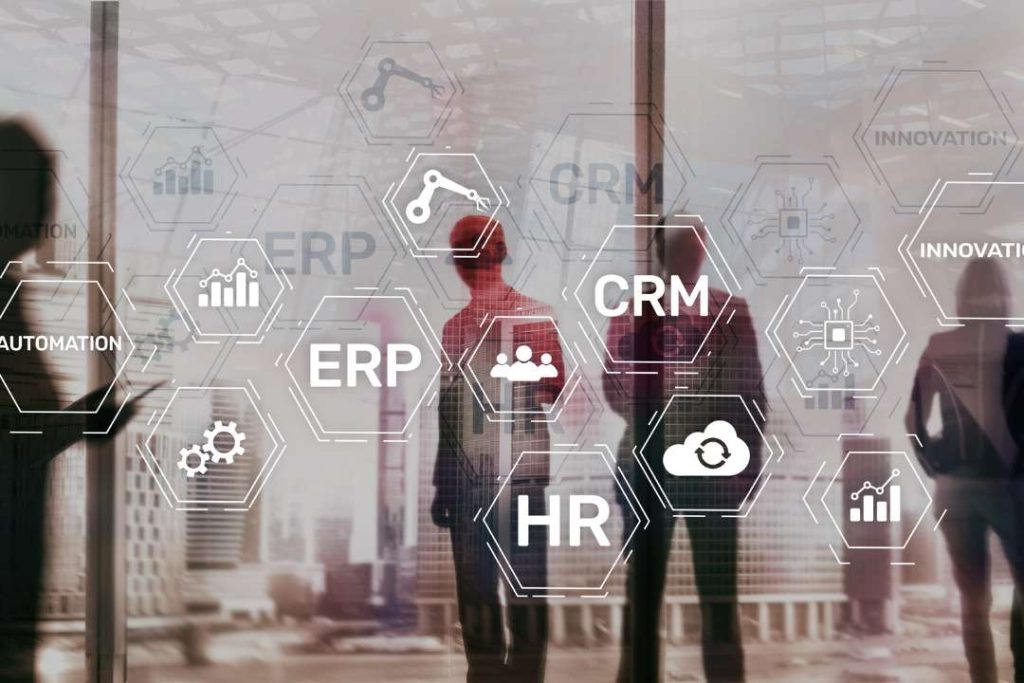
What is a marketplace? Find out how to get the most out of it
What is a marketplace? Find out how to get the most out of it In today’s digital world, marketplaces have

In today’s business world, enterprise resource planning (ERP) systems have become indispensable tools for the efficient management of operations.
These systems integrate and automate a variety of key processes, from accounting and finance to supply chain and customer relationship management. However, choosing the right ERP modules can be a complex challenge, fraught with common mistakes that can have negative consequences for companies.
The following are some of the most common mistakes made when choosing ERP modules and the repercussions they can have:
This fundamental error arises from the lack of a thorough analysis of the company’s specific processes and needs. Without a clear understanding of your company’s objectives, module selection becomes haphazard and ineffective. This results in:
The ERP system does not meet the real needs of the company, which generates frustration among users and limits the return on investment.
Investments are made in modules that do not add real value to the business, which represents an excessive expense and an unnecessary overload of the system.
Integrate your ERP with B2B ecommerce with Stoam SaaS


The false belief that “more is better” can lead to the selection of a large number of modules, without considering the complexity and cost involved.An ERP system overloaded with redundant or underused modules can generate:
Each business sector has its own specific characteristics, challenges and needs. Ignoring this aspect when choosing ERP modules can result in:
The system does not have the necessary tools and capabilities to address industry-specific problems and processes, which limits its usefulness.
The modules are not properly integrated with existing systems and processes, creating information silos and hindering a holistic view of the business.
Costly customizations and modifications are required to adapt the modules to the needs of the industry, which increases implementation time and cost.

These systems can vary considerably in price, from basic solutions to highly customized options. A realistic budget should be established according to the company’s financial capabilities. On the contrary, we would find:
Acquiring and implementing modules without prior evaluation can be a significant risk. Testing the modules thoroughly will allow us to:
Ensure that the modules meet expectations in terms of usability, efficiency and ability to meet the needs of our business.
Detect possible bugs, errors or limitations of the modules before full implementation, allowing corrective actions to be taken or alternatives to be sought.
Minimize the risk of unpleasant surprises and failed investments by having a clear understanding of the actual performance and capabilities of the modules.
Transform your ERP into a powerful B2B ecommerce system

No matter how sophisticated it may be, an ERP system cannot reach its full potential if employees are not properly trained to use it. Lack of staff training could be affected in the following ways:
Users may be reluctant to use the system due to lack of knowledge or confidence, limiting its impact on operations.
Incorrect use of the modules could generate errors, incomplete data or delays in the processes, affecting productivity and quality of work.
Difficulty in using the ERP system would generate frustration among employees, which negatively impacts their motivation and productivity.
Choosing the right ERP modules is a strategic decision with a significant impact on the success of the implementation. A well-configured ERP system can optimize processes, improve efficiency, enhance decision making and generate a competitive advantage for the company.
We must avoid the above-mentioned mistakes and follow a series of recommendations in order to boost ERP efficiency, business growth and profitability:
With a strategic and meticulous approach to choosing ERP modules, your company will be able to transform its operations, improve decision making and achieve its objectives more efficiently and profitably.
At Stoam, we are convinced that the key to business success lies in process optimization and strategic decision making. That’s why we offer you our innovative SaaS, a comprehensive solution designed to boost the growth and profitability of your business.
Share:

What is a marketplace? Find out how to get the most out of it In today’s digital world, marketplaces have

Business to consumer (B2C): how it works and how it differs from B2B In today’s world, e-commerce and direct business-to-consumer

Alibaba revolutionises B2B commerce with ‘Accio’ – the AI-powered search engine for SMEs Share: Tabla de contenidos What is Accio

Examples of market segmentation: How to apply it in different sectors? In today’s competitive business landscape, market segmentation is more

Omni-channel strategy: How to integrate all channels to improve customer experience In a world where consumers use multiple channels to

What are open APIs and their role in SaaS solutions? Open APIs have transformed the way businesses use software, especially

Analysis of B2B marketplaces: Are they an opportunity or a threat? B2B marketplaces are transforming the way companies buy and

How to use chatbots in B2B ecommerce to improve conversions In the world of ecommerce B2B (Business to Business)shopper expectations

ERP and sustainability: How a system can reduce environmental impact Sustainability has become a crucial priority in today’s business landscape.
Automate orders with Stoam SaaS b2b ecommerce
